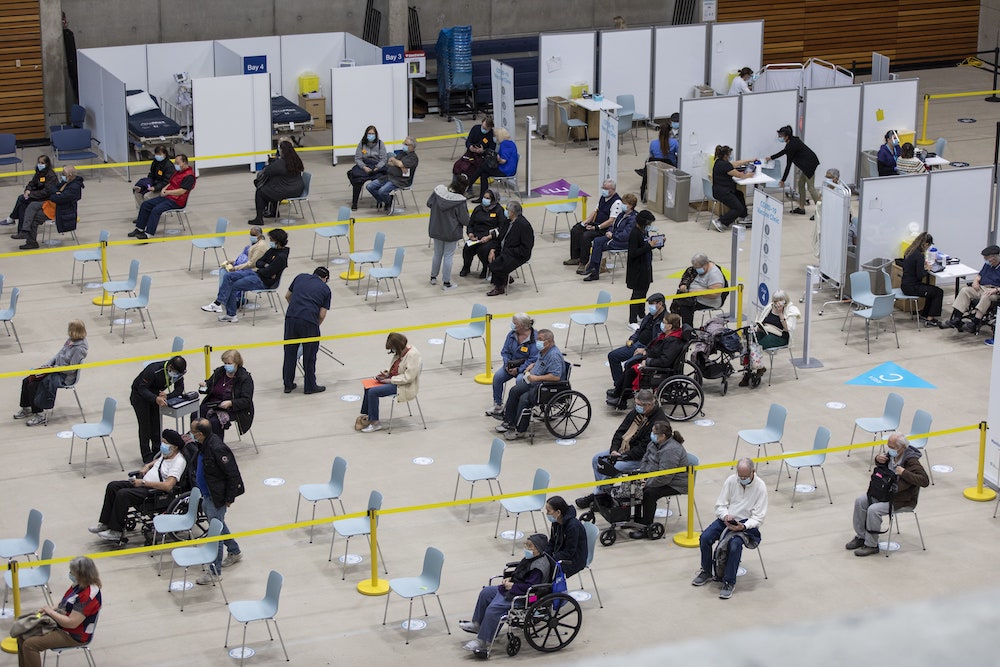IBM



CLIENT
Merck
EXPERTISE
Health & Pharmaceuticals
Merck Canada (Merck) sets a high standard when it comes to creativity and comprehensiveness in terms of its partnership with the University of Toronto. Like many innovative pharmaceutical companies, Merck remains committed to regaining its leadership position in Canadian R&D, in part by shifting its research focus from vertically integrated in-house research towards partnerships with Canadian biotechnology companies, universities and hospitals such as the Toronto Academic Health Science Network, TAHSN, a network of hospitals and clinical research centres anchored by U of T. These interactions leverage Toronto’s well known diverse population for drug validation studies. But Merck’s relationship with the Toronto life sciences ecosystem extends far beyond clinical trials.
In 2015, Merck planted its flag as a pioneer in open science in the drug discovery domain with a major investment in the Structural Genomics Consortium. Headquartered in Toronto, SGC’s sphere of R&D influence is truly global, bringing together researchers from academic institutions and the pharmaceutical industry from Canada, the US, Europe. SGC is empowered by its partner companies, including Merck, to publish research openly and share results broadly such that the discoveries made within this network are open to the entire scientific community.
But drug discovery is not the only platform Merck has elevated within the U of T ecosystem. In 2021, Merck invested in U of T’s Dalla Lana School of Public Health for advances into vaccine research, education and knowledge translation around vaccine science and helping communicate the importance of immunization as a cornerstone of public health. An interdisciplinary effort involving experts from disparate domains such as public health, social work, medicine, nursing and pharmacy, the newly established Centre for Vaccine Preventable Diseases applies a scholarly lens to how to best deploy vaccines and vaccine information for maximum societal benefit.

“Innovative partnerships are key to advance science and, ultimately, help Canadians live healthier lives. As such, we have been very pleased to be teaming up with the DLSPH to help improve confidence in vaccines and the important role immunization programs play in public health,” said Marwan Akar, President and Managing Director at Merck Canada. “This unique collaboration, driven by top-quality research, will help contribute to the prevention and control of infectious diseases both in Canada and internationally and help strengthen our country’s standing as a world-leading home to scientific innovation.”
Beyond scientific dialogue with scholarly collaborators, Merck demonstrated a different level of commitment in working with U of T to build consortia of community agencies to deliver on-the-ground value to indigenous families. For more than a century Merck has been supporting programs to help improve access to health and enhance the quality of life in our communities, including the Merck for Mothers program, a 10-year, $500 million initiative to create a world where no woman dies giving life. In partnership with the University of Toronto’s Waakebiness-Bryce Institute for Indigenous health, Well Living House, Seventh Generation Midwives Toronto and Nishnawbe Homes, the Merck for Mothers program supported The Kind Faces Sharing Places project helping reduce disparities and improving maternal health and infant well-being for over 100 indigenous families in Ontario by bundling myriad social and health resources, all provided in a culturally-appropriate manner for the indigenous communities served.
While enabling these research and training platforms has been an intense focus of Merck’s over the years, the backbone of Merck’s interactions have been sponsored research projects themselves. From fundamental chemistry to applied maternal health and well-being initiatives, Merck’s investment in collaborative research with U of T’s community has formed a complex web of life science innovation with the potential to intersect with Merck’s priorities at every stage of the human health spectrum.